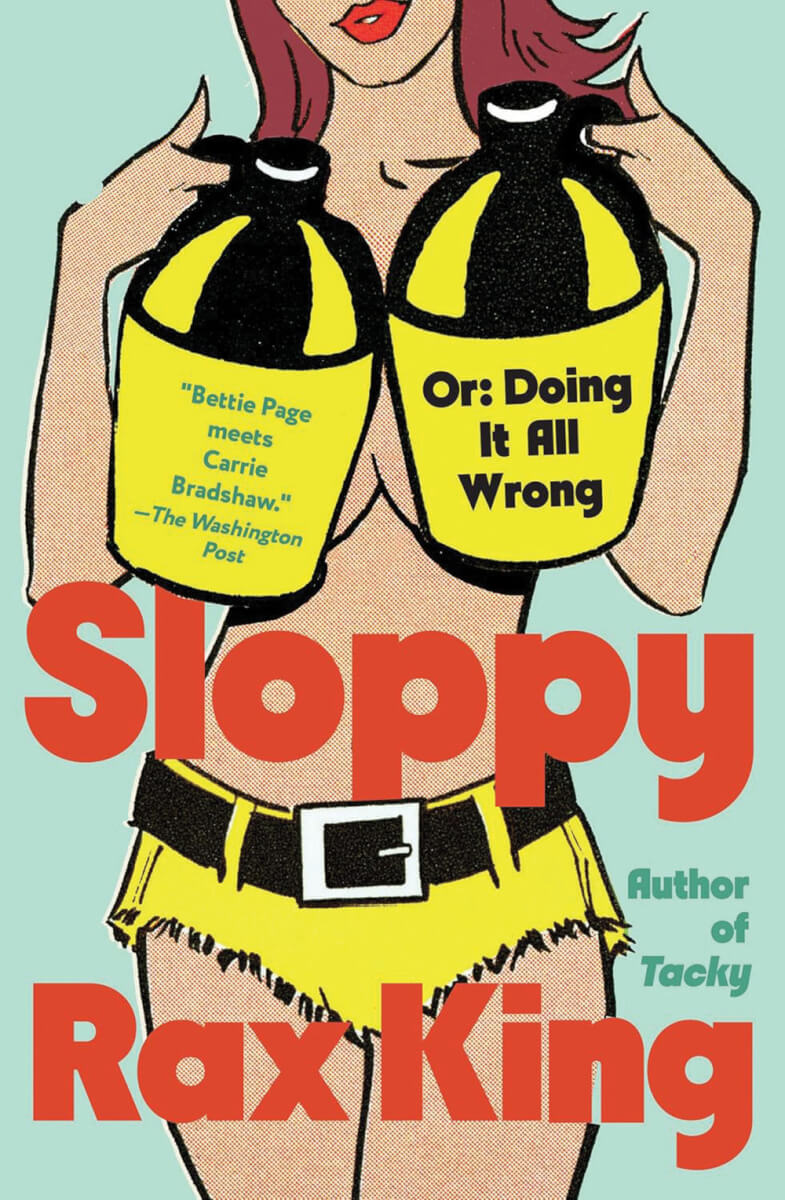Rax King’s 2021 debut, Tacky, introduced readers to the Low Culture Broil podcast host’s self-deprecating humor and razor-sharp wit. In her incisive Sloppy: Or: Doing It All Wrong, King investigates addiction, relationship dynamics, pop culture and more to understand how her less-than-productive habits have shaped her identity. Throughout these 17 no-holds-barred personal essays, King analyzes the nuances of her misbehavior, from the thrill of trolling people in online Neopets forums as a teen, to shoplifting at Brandy Melville in her 30s, to swiping an unsuspecting roommate’s opioid prescription.
King’s definition of “sloppy” is a state of mind that has engendered her often-destructive lifestyle, especially as related to alcohol and drugs. She personifies this inner child as a “party golem who feared neither socializing nor consequences while her sober self feared both.” Her parents were already in recovery from drug and alcohol addiction when she was born, and they long warned King that her own propensity for substance abuse was inevitable. “Thanks to my parents,” King writes in “Proud Alcoholic Stock,” “I dreaded my alcoholic future the way other little girls dread their first period.” Now in early sobriety, King doesn’t claim to have any special wisdom; she’s “white-knuckling it.” But she’s refreshingly self-aware. The party golem inside of her is still hungry, she writes. “We both need feeding—now it’s time for us to learn together what’s safe to eat.”
King shines best when she frames her self-reflection with larger cultural topics. In “Ms. Girl Power,” she unpacks her teenage perspective on feminism and how it was altered after discovering Bitch magazine. “I’d accepted the cultural message that feminists were joyless, hateful, and out of touch,” she observes. “I hadn’t expected them to be capable of producing a magazine that popped like this, full of color and life.” Then, she tempers this revelation by criticizing her subsequent philosophy: “My feminism, in those days, was all about petty revenge, settling scores. The patriarchal male had stolen something from me, and I wanted it back.”
Sloppy doesn’t end in transformative redemption, nor does it justify the embarrassing blunders of selfish youth. Instead, King deconstructs the messiness of what it means to be alive, delivering the kind of clarity and crackling insight that can only be achieved through intentional vulnerability and a refusal to romanticize the past. To err is to be alive, and Sloppy illustrates that personal growth is a surprising, ever-evolving journey.
